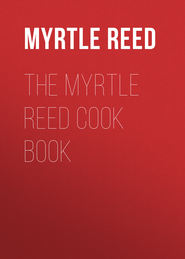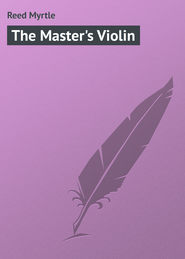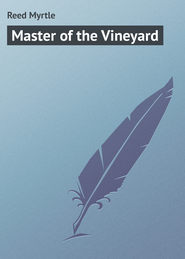По всем вопросам обращайтесь на: info@litportal.ru
(©) 2003-2024.
✖
Threads of Grey and Gold
Настройки чтения
Размер шрифта
Высота строк
Поля
People often inquire what qualities I deem essential to literary success. Imagination is, of course, the first, observation, the second, and ambition, perseverance and executive ability are indispensable. Besides these I would place the sense of humour, of proportion, sympathy, insight, – indeed, there is nothing admirable in human nature which would come amiss in the equipment of a writer.
The necessity for the humourous sense was recently brought home to me most forcibly. A woman brought me the manuscript of a novel which she asked me to read. She felt that something was wrong with it, but she did not know just what it was. She said it needed “a few little touches,” she thought, such as my experience would have fitted me to give, and she would be grateful, indeed, if I would revise it. She added that, owing to the connection which I had formed with my publishing house, it would be an easy matter for me to get it published, and she generously offered to divide the royalties with me if I would consummate the arrangement!
I began to read the manuscript, and had not gone far when I discovered that it was indeed rare. The entire family read it, or portions of it, with screams of laughter, and with tears in their eyes, although it was not intended to be a funny book at all. To this day, certain phrases from that novel will upset any one of us, even at a solemn time.
Of course it was badly written. Characters appeared, talked for a few pages, and were never seen or heard from again.
Long conversations were intruded which had no connection with such plot as there was. Commonplace descriptions of scenery, also useless, were frequent. Many a time the thread of the story was lost. There were no distinguishing traits in any one of the characters – they all talked very much alike. But the supreme defect was the author’s lack of humour. With all seriousness, she made her people say and do things which were absolutely ridiculous and not by any means true to life.
I think I must have an unsuspected bit of tact somewhere for I extricated myself from the situation, and the woman is still my friend. I did not hurt her feelings about her book, nor did I send it to my publishers with a letter of recommendation. I remarked that her central idea was all right, which was true, since it was a love story, but that it had not been properly developed and that she needed to study. She thanked me for my counsel and said she would rewrite it. I wish it might be printed just as it was, however, for it is indeed a sodden and mirthless world in which we live and move.
As the editors say on the refusal blanks, “I am always glad to read manuscripts,” although, as a rule, it makes an enemy for me if I try to help the author by criticism, when only praise was expected or desired.
Having written some verse which has landed in respectable places, I am also asked about poetry. Poems written in trochaic metre with the good old rhymes, “trees and breeze,” “light and night,” soldered on at the end of the lines, are continually brought to me for revision and improvement.
Once, for the benefit of the literary aspirant, I brought out my rhyming dictionary, but I shall never do it again. He looked it over carefully, while I explained the advantage for the writer in having before him all the available rhymes, so that the least common might be quickly chosen and the verse made to run smoothly.
“Humph!” he said; “it’s just the book. Anybody can write poetry with one of these books!”
My invaluable thesaurus is chained to my desk in order that it may not escape, and I frequently have to justify its existence when aliens penetrate my den. “It’s no wonder you can write,” was said to me once. “Here’s all the English language right on your desk, and all you’ve got to do is to put it together.”
“Yes,” I answered wickedly, “but it’s all in the dictionary too.”
Last week I had a rare treat. I met a woman who had “never seen a literary person before,” and who said “it was quite a novelty!” I beamed upon her, for it is very nice to be a “novelty,” and after a while we became quite confidential.
“I want you to tell me just how you write,” she said, “so’s I can tell the folks at home. I’m going to buy some of your books to give away.”
Mindful of “royalty to author,” I immediately became willing to tell anything I could.
“Well, I want to know how you write. Do you just sit down and do it?”
“Yes, I just sit down and do it.”
“Do you write any special time?”
“No, mornings, usually; but any time will do.”
“What do you write with – a pen or a pencil?”
“Neither, I always use a typewriter.”
“Why, can you write on a typewriter?”
“Yes, it’s much easier than a pen, and it keeps the ink off your hands. You can write with both hands at once, you know.”
“You have to write it all out with a pencil, first, don’t you?”
“No, I just think into the keys.”
“Wouldn’t it be easier to write it with a pencil first and then copy it?”
“No, or I’d do it that way.”
“Do you dress any special way when you write?”
“No, only I must be neat and also comfortable. I usually wear a shirt-waist and take off my collar. Can’t write with a collar on, but I must be well groomed otherwise.”
There was a long silence. The little lady was digesting the information which she had just received.
“It seems easy enough,” she said. “I should think any one could write. What do you do when it is done?”
“Oh, I go all over it and revise very carefully.”
“Why, do you have to go all over it, after it is done?”
“Certainly.”
“Then it takes you longer than it does most people, doesn’t it?”
“I cannot say as to that. Everybody revises.”
“Why, when I write a letter, if I go over it I always scratch out so much that I have to do it over.”
“That’s the idea, exactly,” I replied. “I go over it until there isn’t a thing to be scratched out, or a word to be changed.”
“But you’ve got lots left,” she said, enviously. “When I go over a letter there’s hardly anything left.”
Innumerable questions followed these, but at last she had her curiosity partially satisfied and turned away from me. I trust, however, that I shall some day meet her again, for she too is “a novelty!”
The mechanical part of a book is a source of great wonder to the uninitiated. My galley proofs were once passed around among the guests at a summer hotel as if they were some new strange animal. They did not understand page proofs nor plates, nor how I could ever know when it was right.
The cover is frequently commented upon as a thing of beauty (which with my publishers it always is), and I am asked if I did it. I am always sorry that I do not know enough to do covers, so I have to explain that an artist does that – that I often do not see it until the first copies come from the bindery, and that I am of such small importance that I am not often consulted in relation to the matter – being merely the poor worm who wrote the book.
There are many people who seem to be afraid to talk before me lest their pearly utterances be transformed into copy. Time and time again I have heard this: “We must be very careful what we say now, or Miss – will put us into a book!”
People are strangely literal. An author gets no credit whatever for inventive faculty – his characters and stories are supposedly real people and real things. I am asked how I came to know so much about such and such a thing. I once wrote a love story with an unhappy ending and it was at once assumed that I had been disappointed in love!
When my first book came from the press I was pointed out at a reception as the author of it. The man surveyed me long and carefully, then he announced: “That’s a mistake. That girl never wrote that book. She’s too frivolous and empty headed!”
I have tried, until I am discouraged, to make people understand that a book does not have to be a verity in order to be true – that a story must be possible, instead of actual, and that actual circumstances may be too unreal for literature.
There are always people who will ask that things, even books, may be written especially for them. People often want to tell me a story and let me write it up into a nice book and divide the royalties with them! During a summer at the coast, I had endless opportunities to write biographical sketches of the guests at the hotel – to write a story and put them all into it, or to write something about anything, that they might have as “a souvenir!” As a matter of fact, there were only two people at the hotel who could have been of any possible use as copy, and one of these was a woman to whom only Mr. Stockton could have done justice.
It was hard to be always good-natured, but I lost my temper only once. We stayed late into the autumn and were rewarded by a magnificent storm. I put on my bathing suit and my mackintosh and went down to the beach, in the teeth of a northwest gale. Little needles of sand were blown in my face, and I lost my cap, but it was well worth the effort. For over an hour we stood on the desolate beach, sheltered from the sand by a bath house. I had never seen anything so grand – it was far beyond words. At last it grew dark and I was soaked through and stiff with the cold. So I went back to the hotel, my soul struck dumb by the might and glory of the sea. My heart was too full to speak. The majestic chords were still thundering in my ears; that tempest-tossed ocean was still before my eyes. On my way upstairs I met a woman whom I had formerly liked.
“Oh, Miss – , I want you to write me a description of that storm!” I brushed past her, rudely, I fear, and she caught hold of the cape of my mackintosh with elephantine playfulness. “You can’t go,” she said coquettishly, “until you promise to write me a description of that storm!”
“I can’t write it,” I said coldly. “Please let me go.”











